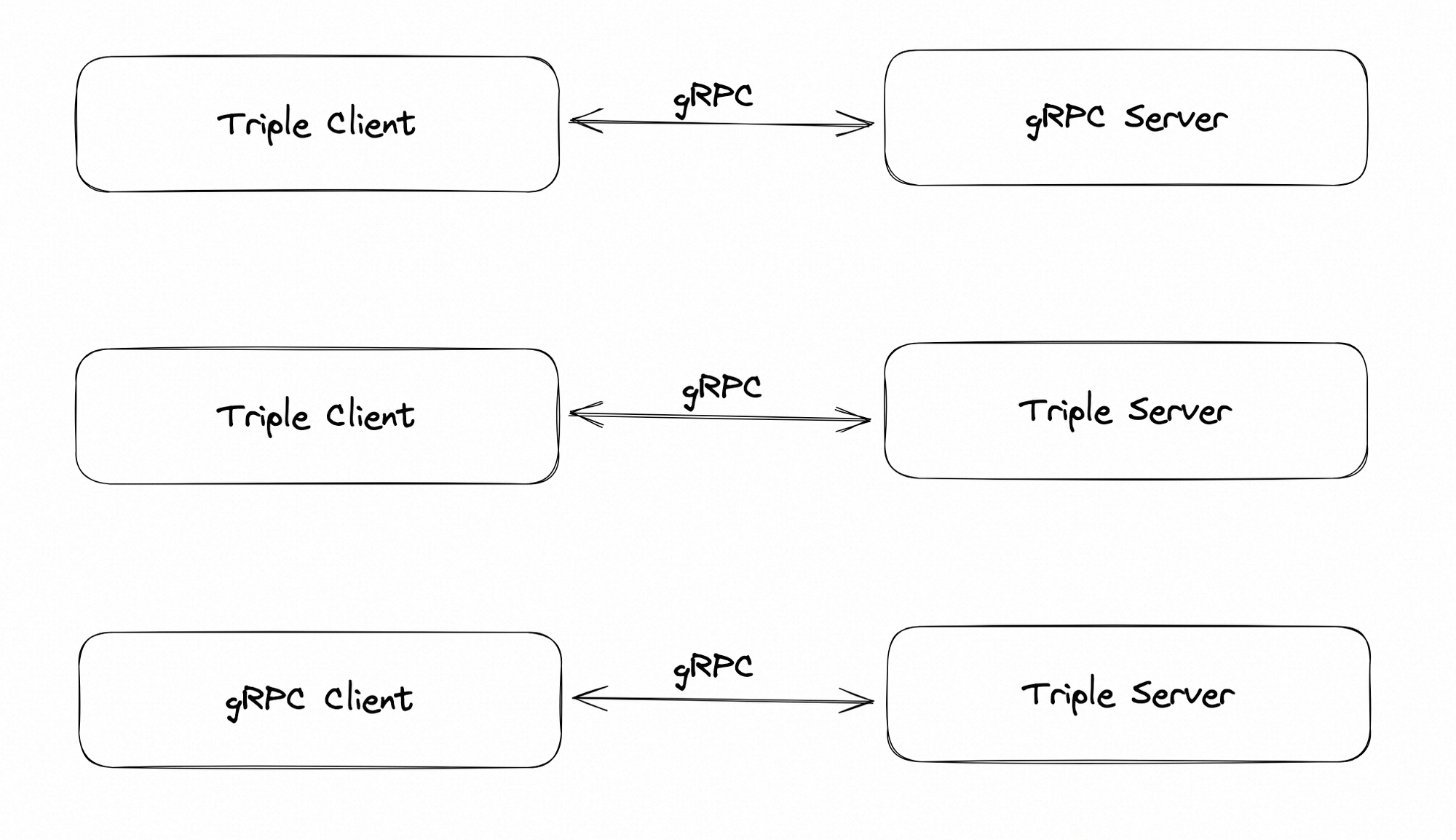Develop gRPC Services with Dubbo
This example demonstrates how to implement mutual calls between Dubbo services and standard gRPC services using the triple protocol. You can view the complete source code of the example.

As described in the Triple Protocol Specification, the triple protocol is 100% compatible with the gRPC protocol, while significantly improving usability (e.g., support for cURL, direct browser access, etc.). It can be said that triple is a more user-friendly design and implementation of gRPC.
Run Example
First, you can download the example source code using the following command:
git clone --depth=1 https://github.com/apache/dubbo-samples.git
Navigate to the example source directory:
cd dubbo-samples/2-advanced/dubbo-samples-triple-grpc
Next, we will look at how to achieve mutual calls based on the triple protocol from two different directions: calling gRPC from Dubbo and calling Dubbo from gRPC.
As a Standard gRPC Server
In this section, we will publish a Dubbo Triple Server and then start a standard gRPC consumer (this example uses the gRPC-Java client released by Google) to call the Triple service.
Start Dubbo Server
Make sure you are in the dubbo-samples-triple-grpc directory and run the following command:
$ mvn compile exec:java -Dexec.mainClass="org.apache.dubbo.samples.tri.grpc.interop.server.TriOpServer"
Call Triple Service Using Standard gRPC Client
Open a new terminal and run the following command in the dubbo-samples-triple-grpc directory:
$ mvn compile exec:java -Dexec.mainClass="org.apache.dubbo.samples.tri.grpc.interop.server.GrpcClient"
As a Standard gRPC Client
In the following section, we will demonstrate how to access Google’s official gRPC service using the triple protocol (this example uses the gRPC-Java client released by Google).
Start Standard gRPC Server
$ mvn compile exec:java -Dexec.mainClass="org.apache.dubbo.samples.tri.grpc.interop.client.GrpcServer"
Call Standard gRPC Service Using Dubbo Client
$ mvn compile exec:java -Dexec.mainClass="org.apache.dubbo.samples.tri.grpc.interop.client.TriOpClient"
More Content
This example mainly demonstrates that triple is 100% compatible with the gRPC framework published by Google. As for the specific code and configuration related to triple, this example is completely consistent with the previously introduced protobuf-based triple example, so we will not repeat the source code and development steps.
This example demonstrates communication compatibility in unary mode, which is also applicable to streaming mode.